Making Maths Engaging and Fun
Help your child with maths. Research shows time and again that children do better at school when parents support their learning at home.
Three sets of maths cards for parents who want to play games to help their children with maths

Counting and Place Value Maths Cards
Age 4+
Great for children who are learning to count and understand numbers up to 100.

Doubling and Halving Maths Cards
Age 5+
Versatile way to explore number, simple addition, doubling, halving and the 2x table.
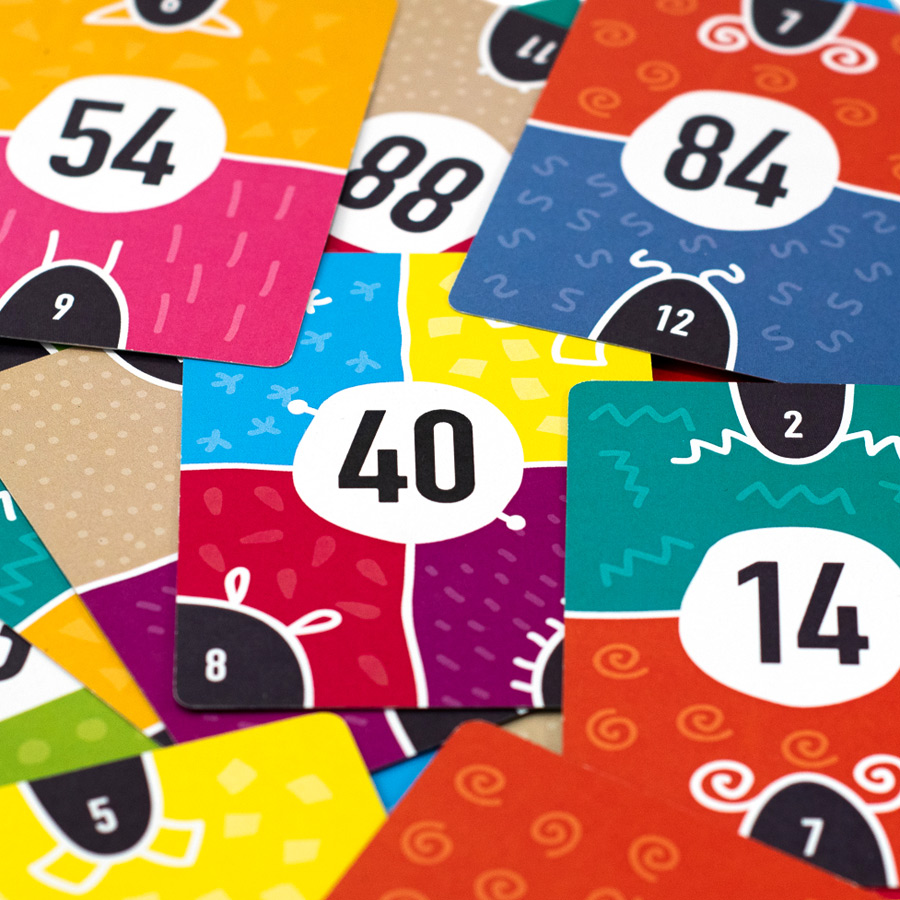
Times Tables Maths Cards
Age 5+
Great for children learning times table facts and working on multiplication and division.
Help your child with maths, but keep it fun!
Research shows time and again that children do better at school when parents support their learning at home. Attainment in maths is significantly influenced by how much parents can support their child with regular practice at home, particularly in the early stages when children are building up an understanding of the number system. FunKey Maths cards help parents start early, from age 4+, and provides the tools needed – cards and activities – to keep maths practise fun and engaging.
Children learn not only the facts needed to meet primary school goals, but the conceptual understanding and confidence needed to progress to higher levels. Through games played with parents and carers, by themselves or with siblings and friends, FunKey Maths cards can make a difference five minutes at a time!
Play maths card games
Practice isn’t possible without it being engaging for children – and children love FunKey Maths card games.
The attractive designs invite children to play and invent their own games, while the activity suggestions we provide ensure coverage of key curriculum areas and a high level of variety so children (and adults) never get bored.
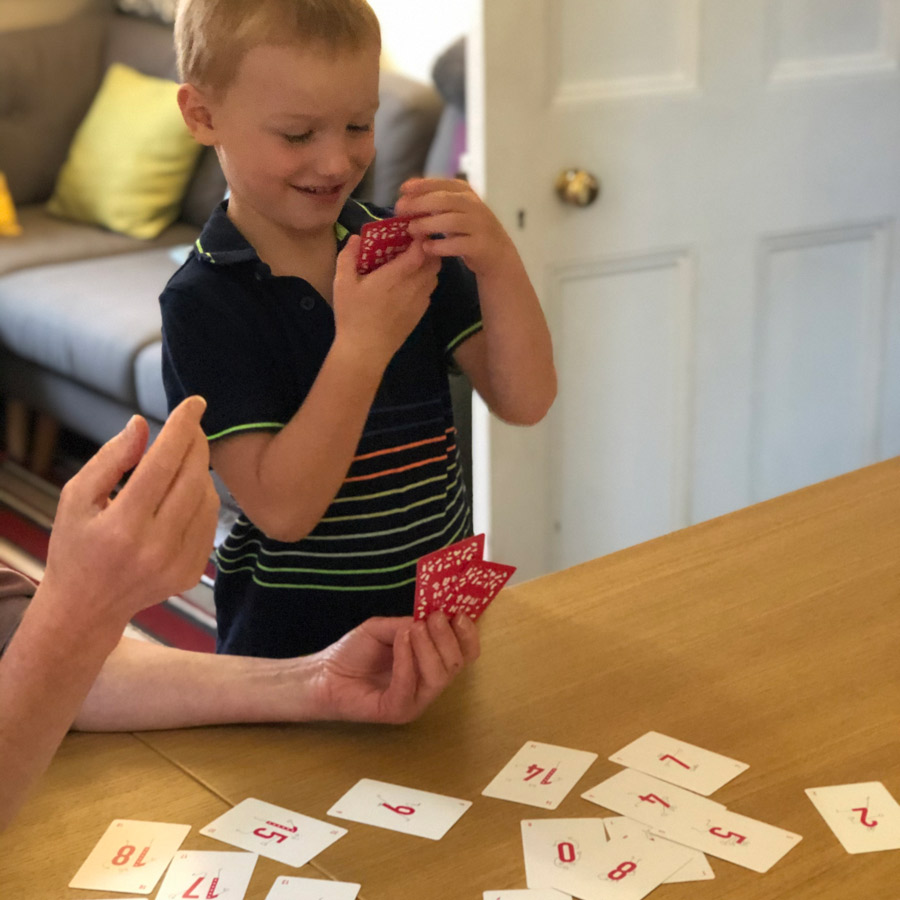
Maths Resources for Parents
FunKey Maths Cards come with access to a wide and ever-growing range of resources for parents and carers to help children use cards in the home solo, one to one or in larger family groups.
Our free support resources help you get the most out of the cards and include quick start guides, activity notes, games instructions and supplementary worksheets. There are also short online videos of many of the games to help you get started.
Private: Counting and Place Value Maths Cards
£10.00 plus VAT
Great for children who are ready to count in 1s and 10s and develop an understanding of the number system up to 100
Understanding numbers and learning to count up to 100
Alongside counting, children need to develop number sense. A child with good number sense can not only count forwards and backwards, they can also tell you that 5 is less than 8 and one more than 4. They would know that in 28 the 2 represents 20, and that 28 is ten more than 18.
The Counting Cards and the extensive programme of activities which accompany them are a fantastic way to help children who need to develop a secure understanding of the number system up to 100.

Easy-to-follow programme of activities to use with the maths cards
FunKey Maths has created a structured programme of activities to help children develop a firm foundation in number work.
There are four free programmes of activities to download, which progressively build up children’s skills and confidence with numbers up to 100.
The activity notes are easy to follow but there are also free videos to watch online of many of the activities, to give you the confidence you need to work successfully with your child.
If you work through all the games and activities we have created you will practise key skills such as:
- Reading numbers
- Counting in 1s and 10s
- Ordering numbers
- Identifying one more and one less, ten more and ten less
- Partitioning numbers
- Combining multiples of 10 and single digits
- Adding or subtracting 1 or 10 to any 2-digit number
Doubling and Halving Maths Cards
£10.00 plus VAT
Great for working on simple addition and multiplication, doubling and halving.
Doubling and halving is a key mathematical skill but one which is often neglected in schools. Playing with these cards will help children develop a clear understanding of what a double represents and the different ways it can be presented.
There are four types of maths cards in the pack
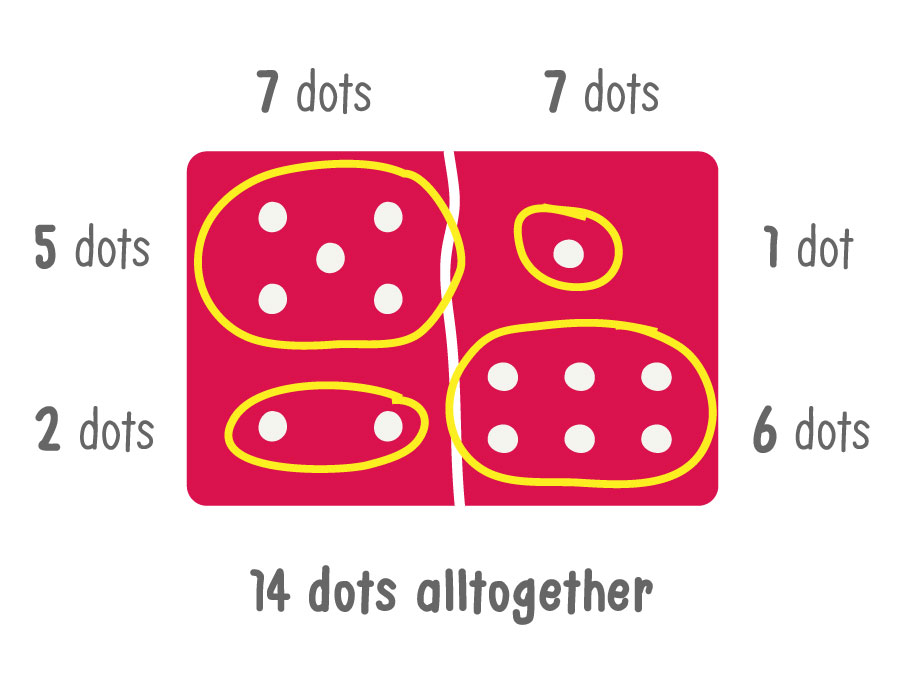
The dot cards help children see that there are different ways to make a total.
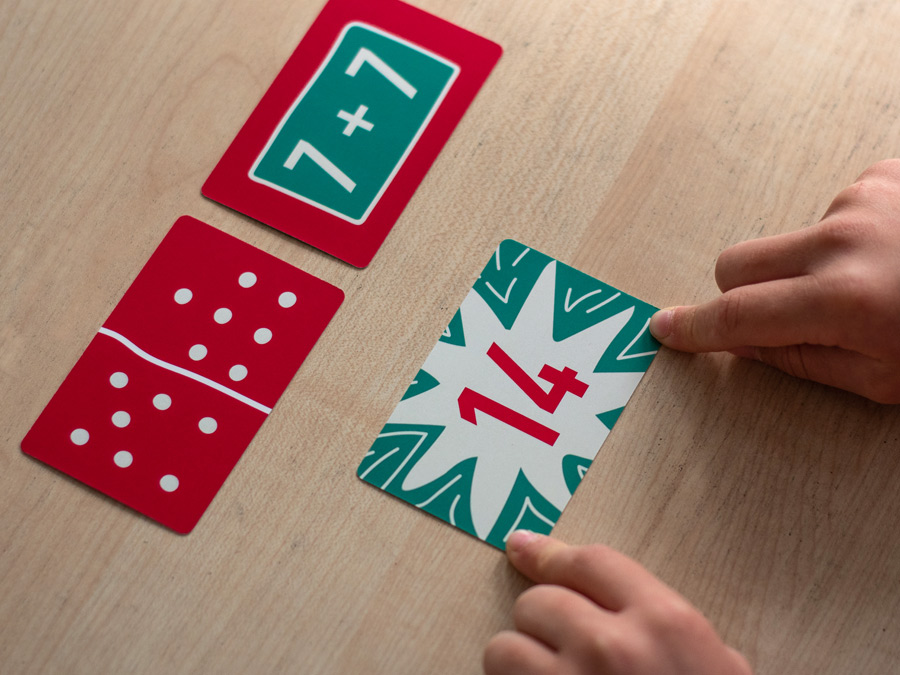
When children match addition and dot cards, they see what numbers and symbols represent.

Matching addition cards to totals helps children learn key doubling and halving facts.
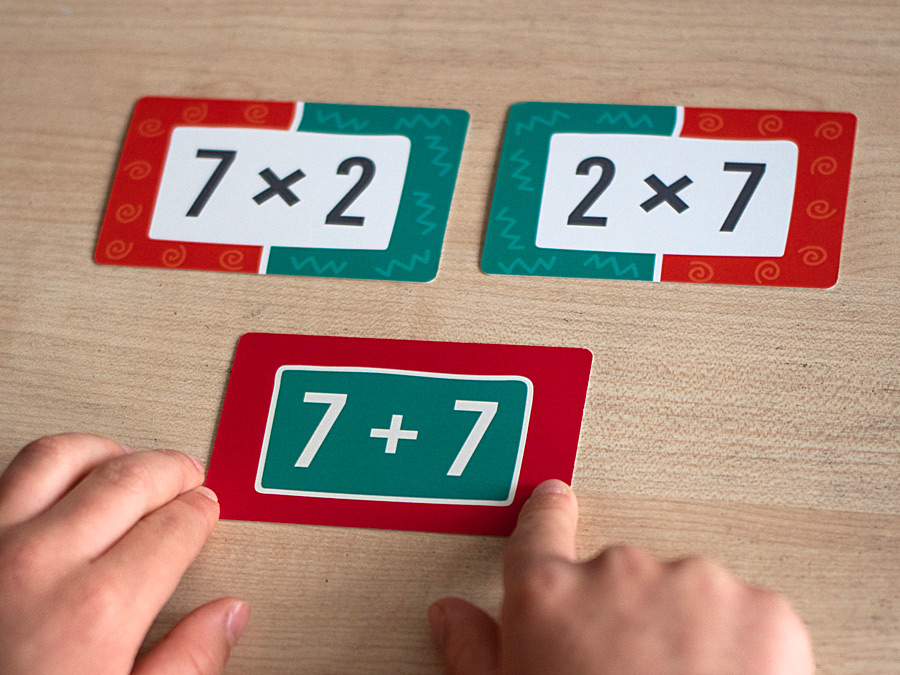
Addition cards and multiplication cards link doubling and the 2x table.
Maths games and activities to teach your child doubling and halving
When games are fun children willingly play again and again, ensuring they get the repeated practice they need to develop their skills and confidence.
FunKey Maths has created a structured programme of ten game-based activities to use with the doubling and halving cards. You can download the programme for free. It includes games like Pairs, Snap and Slap Bingo which are hugely enjoyable for children and easy to play at home, or on the move.
Five minutes of fun here and there can make a huge difference to how your child feels about maths and their skill levels
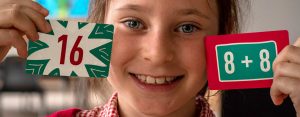
Times Tables Maths Cards
£10.00 plus VAT
Great for working on multiplication, division and times tables.
The cards help childen learn times table facts from scratch, and our games and activities are a great way to revisit times table facts children still need to practise.
There are twelves games to play. You can even play old favourites like Snap and Uno. The design of the cards means that every time a child plays a game, they are reminded of times table facts. It’s a fun way to learn.
Maths flash cards are designed to help children develop rapid recall of facts
On the FunKey Times Table cards the colours, shapes and position of numbers all have meaning.
Each times table has its own colour. So, for example, if a product is in the 7x table, there will be orange on the card.


As children become familiar with the colour coding, they can retrieve number facts just by picturing a card.
This can be a game-changer for children who have struggled to remember facts using traditional auditory methods such as chanting.
Lots of children like to draw a card from memory to retrieve key multiplication and division facts. The position and size of the numbers on the cards helps children to understand how the numbers are connected, and see the links between division and multiplication.
Learning Times Table Facts
With the FunKey Times Tables cards, children don’t learn facts in isolation, they learn related facts together. There are only 59 cards to get to know all your times table facts up to 12 x 12!
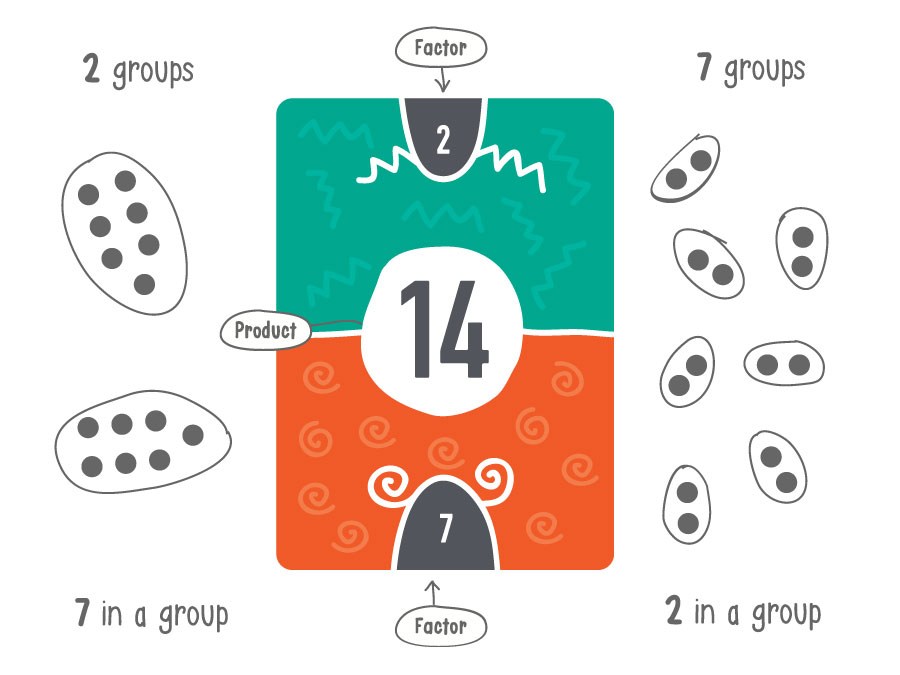
Children quickly grasp that the factors round the edge of the card show different ways the product can be divided into equal parts.
They can then link the numbers on a card into multiplication and division facts.
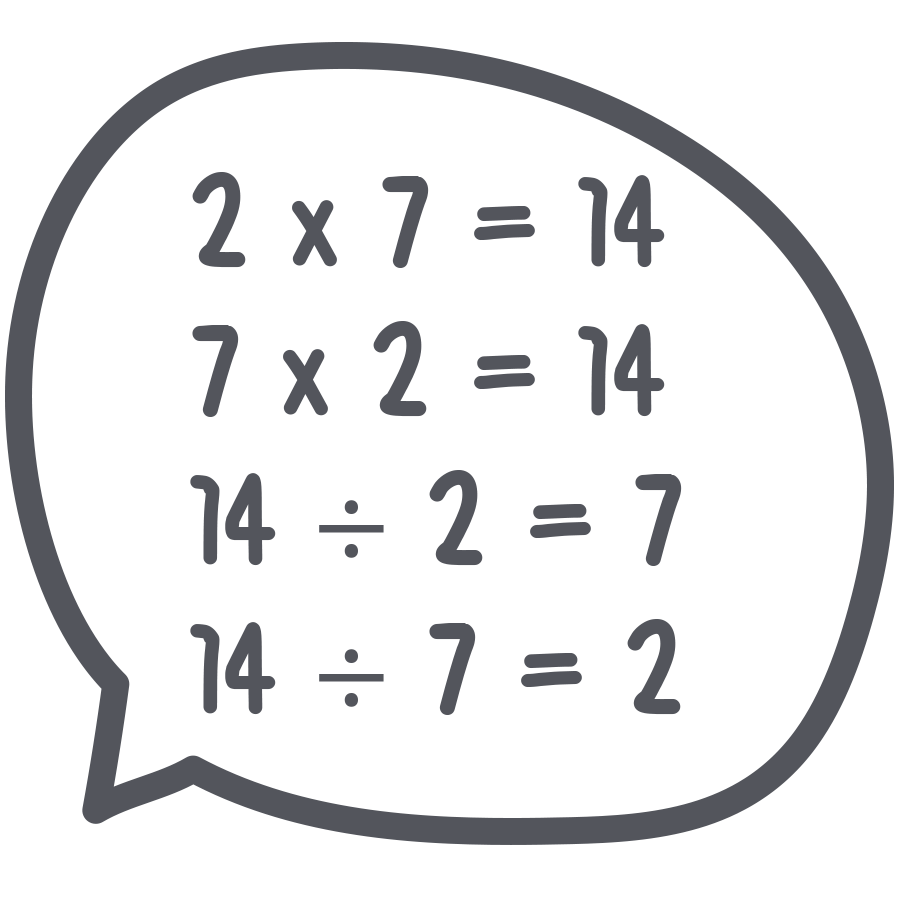
Watch how it works! In this video children are working on 14
Learning about Prime and Square Numbers
Children also need to learn about prime and square numbers. The design of the card makes it easy!
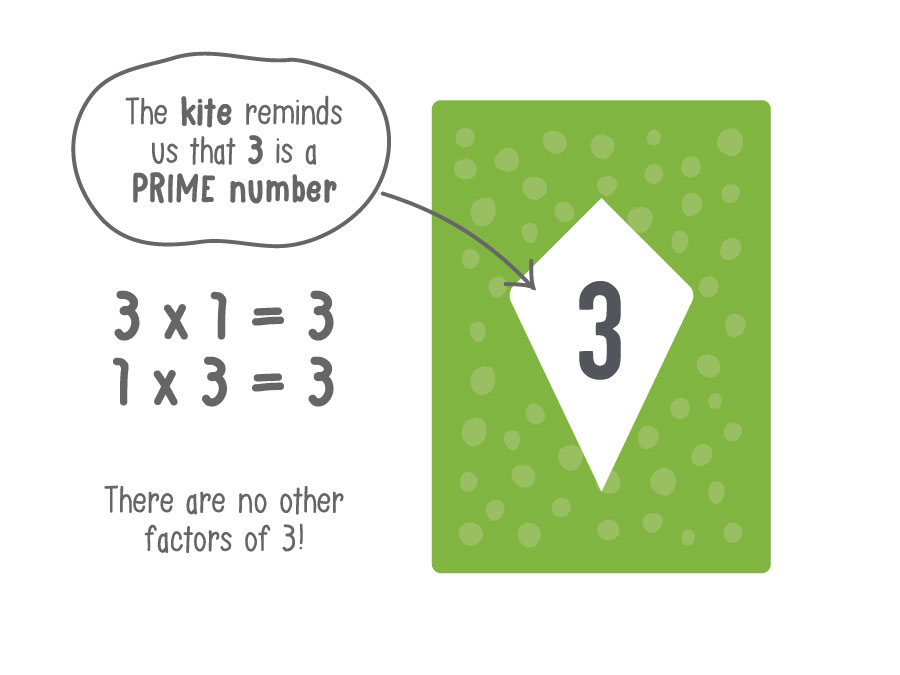
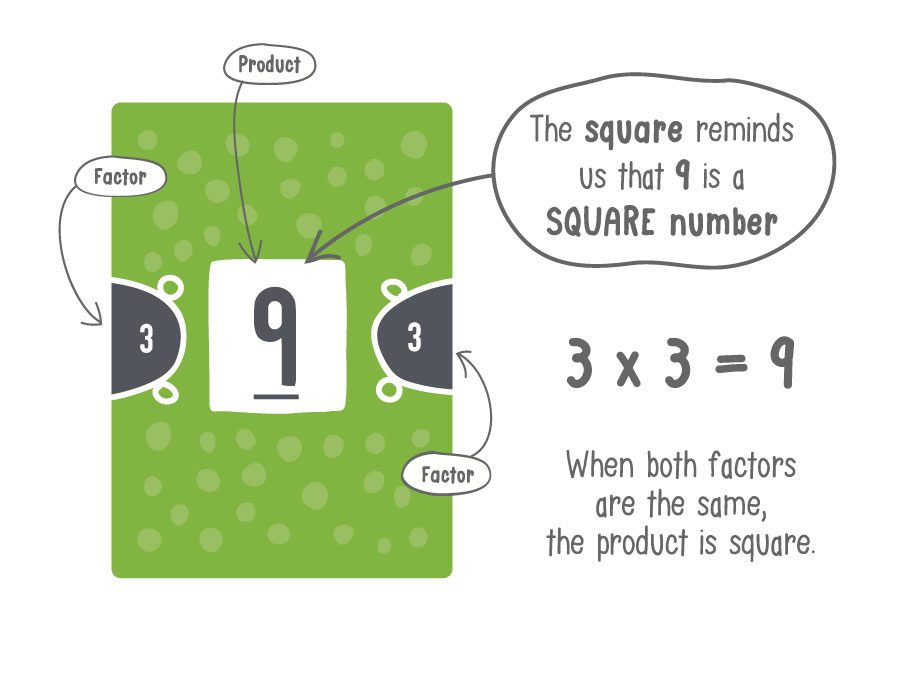
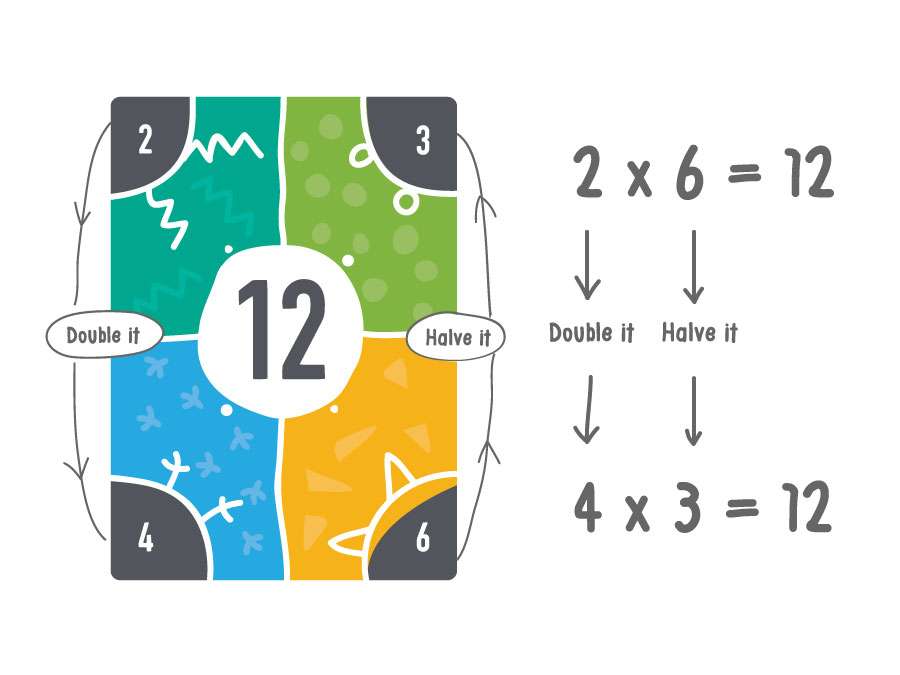
Help your child with maths: developing conceptual understanding
Maths cards which show more than two factors help children understand the links between related multiplication and division facts.
4.5 x 18 looks tricky.
But, double one factor and halve the other and it becomes 9 x 9 = 81. Easy peasy!
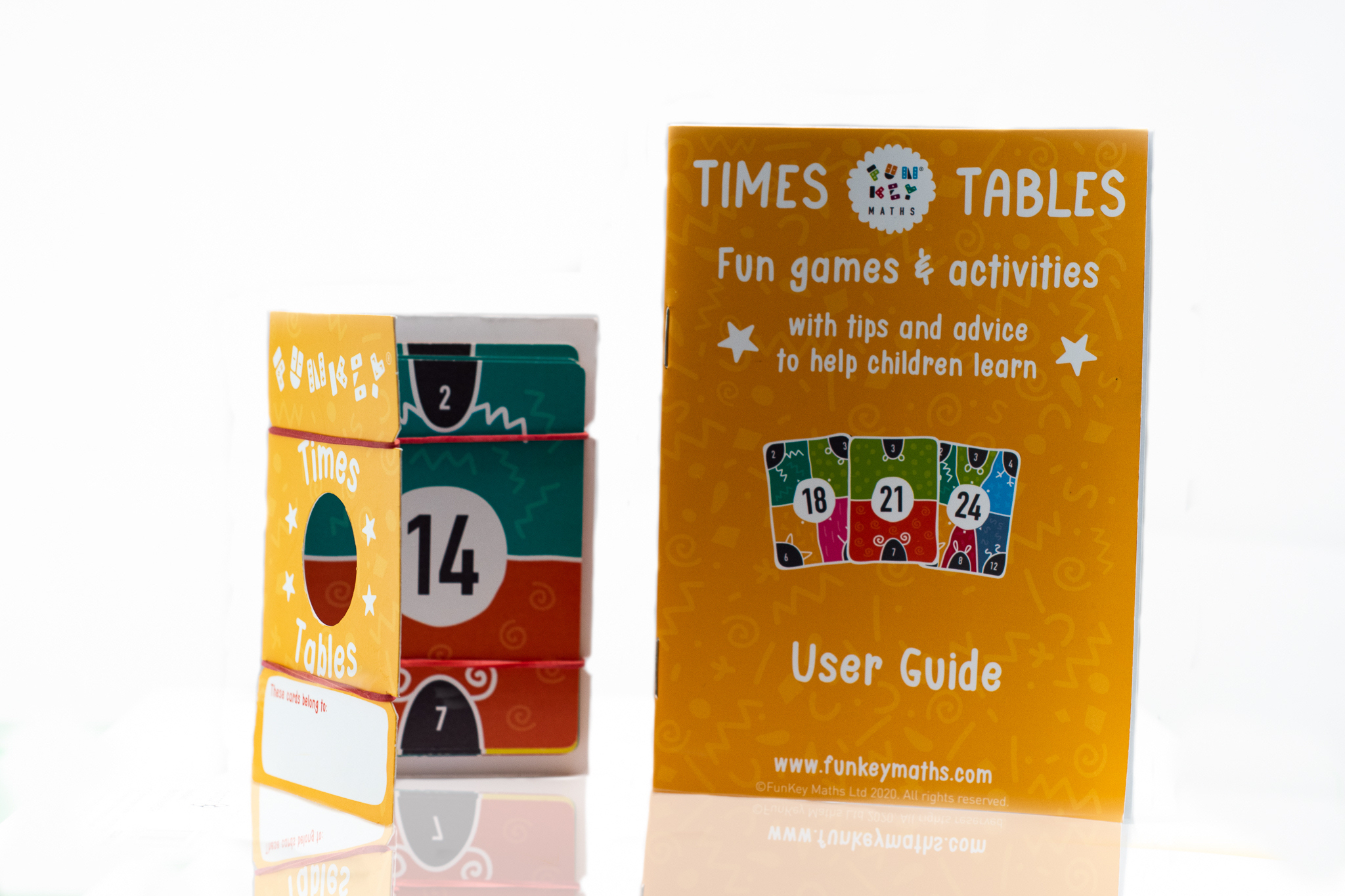
The FunKey Times Table Cardholder and User Guide
Our FunKey cardholder helps children focus on getting to know individual cards really well and they can test themselves too! The User Guide is full of ideas for how to help your child with Times Tables and has instructions for twelve fun games to play.
Our product charts and certificates motivate children to build their skills in manageable chunks and our multiplication and division tests help children understand which cards they still need to work on.
Help your child with maths: develop reasoning in maths using our free maths resources and worksheets
We have a huge range of additional resources and worksheets to download for free. These are great for home learning and for children who like mathematical challenge.
